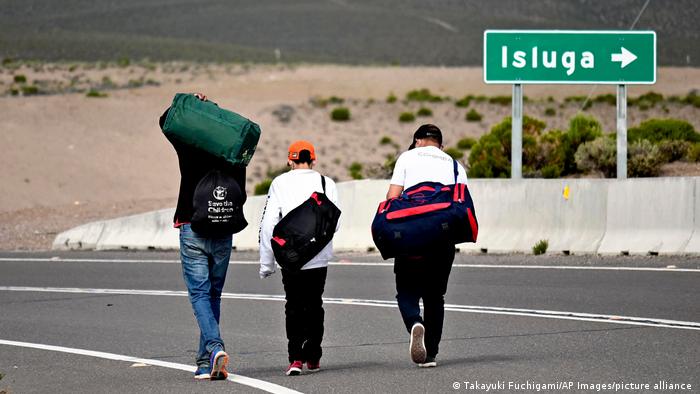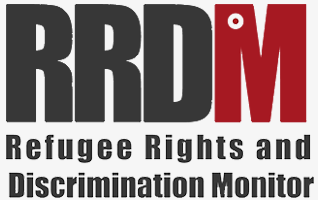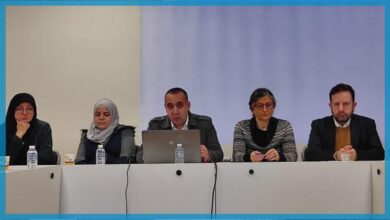Discrimination and Lack of Health Care… the Suffering of Refugees in Host Countries

In a new report, the World Health Organization has sounded the alarm about the deterioration of health care for many refugees in host countries. The situation is exacerbated by their unfamiliarity with the language and rules of the health system or the discrimination and prejudice against them in those countries.
Vahid Ariane spent the first five years of his life in a basement to protect it from missiles and bombs; The boy, who is now an emergency doctor in Britain, was born in Kabul in the 1980s, during the Soviet war in Afghanistan.
During that period, life was not easy for Aryan and his family, who were suffering from a lack of food. Matters worsened when he and his brothers suffered from a cough disease, after which the family fled to Pakistan with the increased risks of living in Afghanistan.
However, the exodus to neighboring Pakistan was not easy. With the closure of the borders, the only way is to bypass a mountainous road fraught with dangers from every direction while riding donkeys and horses.
With great sadness, Aryan recalls this trip, saying, “My family was attacked three times, but eventually survived and eventually reached a refugee camp in Pakistan, where they lived with many in tents in harsh and very hot conditions with temperatures reaching more than 45 degrees Celsius.”
“Such conditions helped the spread of many diseases such as malaria and tuberculosis, as I and members of my family fell ill with malaria and we survived, but soon I suffered from tuberculosis and I was on the verge of death,” he added. Ariane referred to this while telling his story and suffering at a press conference for the World Health Organization held on Wednesday (20 July 2022).
The suffering is still going on
A recent report by the World Health Organization indicated that the health care of many refugees and migrants continues to deteriorate, and that the chapters of Ariane’s suffering are still being repeated at the present time.
“The conditions that we see inside the refugee camps today, are not very different from the conditions I experienced myself. Although we were safe from the danger of bombs falling on our heads, we were not safe physically or socially, even our mental health was not safe,” Aryan said.
In his 15th year, Aryan traveled to the UK where he was still suffering from ‘Post Traumatic Stress Disorder’. But he managed to get past that, as it led him to enroll in university to study medicine and become a doctor.
Overcrowding in refugee camps and the deterioration of services lead to the spread of diseases among them
Mental illness and trauma
Aryan’s tragedy highlights the many health problems faced by migrants and refugees. Although Aryan, who is currently a doctor, has achieved unique success, his childhood is not much different from that of millions of people born in conflict-ridden countries.
The WHO report mentions how the stages of migration and displacement can affect the lives of migrants, from fleeing in search of safety and living in isolated temporary homes, to arriving in safer countries. They were subjected to forms of discrimination when dealing with health care institutions in the countries in which they moved to live.
In Europe, the prevalence of “mental disorders and depression” among refugees and migrants reached 32 percent, while this percentage among the population of host countries is approximately 4 percent.
The report revealed that there are many factors that affect the health of refugees and migrants, both before and during flight and even after flight.
The refugee journey and the dangers of the escape route
The conditions and suffering of fleeing countries reeling from crises, conflicts and wars differ from one country to another, but sexual or physical abuse may be the most violent. Especially during smuggling operations. Women are often victims of sexual exploitation and abuse.
But women are not the only victims of sexual assault. In a clinic providing health care for asylum seekers in a European country, the report revealed that 28 percent of survivors of sexual assault were male, a fact that many ignore despite its danger to male health and life.
Many said they were sexually assaulted on the migration routes rather than in the countries from which they fled, and they suffer from stigma that prevents them from reporting abuse or mistreatment that may continue in healthcare settings.
Even when reported, male survivors of sexual assault may experience negative attitudes from health care workers such as disbelief or empathy, especially from workers who have xenophobic and homophobic stereotypes and prejudices and that men “cannot be raped.”
The report cited a study conducted in a country on refugees who had survived torture or sexual assaults, including rape. The study revealed that men did not seek help, receive treatment, or even report their case.
Immigrants’ lack of knowledge of the health system rules and the language of the host country is one of the reasons that may prevent them from getting the health care they need
The report stated that stigmas based on gender may affect the mental health of migrants in many ways. For example, the report referred to what some call “masculinity exhaustion”, a condition that occurs when men feel that they cannot fulfill their duties.
The report said that refugees and migrants reported being subjected to pressure, to push them to play masculine social roles, such as providing aid to their families in their countries of origin. If they are unable to do so due to lack of education, difficulty in communicating in host countries, or perhaps subject to discrimination, migrants and refugees are exposed to further pressures and feelings of powerlessness towards their families.
Racism in medical clinics
The problems faced by migrants are not limited to the flight, as chapters of suffering extend beyond their arrival to safety in host countries, where they face poor health care.
Migrants in different parts of the world have reported difficulties in understanding health care systems in host countries. As a result, they are unable to access health benefits and services, while language barriers, financial problems or a lack of empathy may be the reason for this.
A study conducted in Denmark, cited by the World Health Organization report, stated that immigrants and refugees are not familiar with the health system, along with the language barrier; May reduce their desire to seek medical care.
Article written by: Claire Roth / MA
www.dw.com




